Young soldiers with heads turned by power

Umm al-Amad, July, 2017. Photo by Margaret Olin
I don’t like guns. 2nd, I don’t like men who like guns.
Text by David Shulman, Umm al-Amad, Ma‘in
Photos by Margaret Olin, author of Touching Photographs, Thinking with and about Photographs, Univ. of Chicago Press, 2011
December 02/03, 2017
He’s young, the lieutenant; the faint trace of a mustache tells all. Awkward, inexperienced, unsure. More than a boy, hardly a man. He speaks fast, the words clipped, sharp, hurtful. He keeps playing with his rifle, waving it, aiming it, caressing it, turning it upside down, comforting it when it somehow rights itself again. The bullet clip is loaded; I can’t see if the safety catch is released. I don’t like any of this, for two reasons. First, I don’t like guns. I had to carry one, when I was a little older than the lieutenant, and I hated it. Second, I don’t like men who like guns.
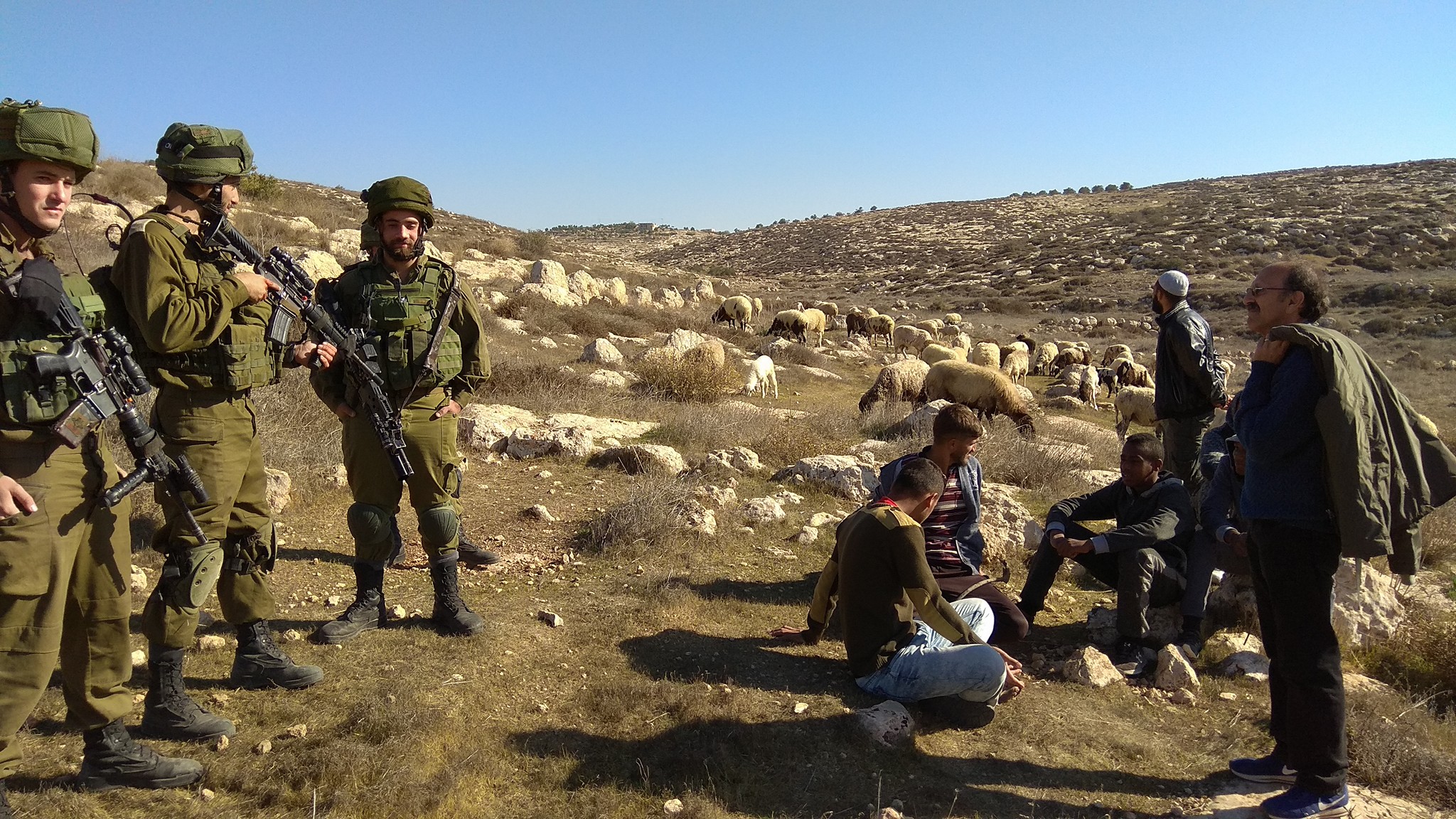
Umm al-Amad. Photo by Guy Butavia
He’s here to drive the shepherds off their lands. He’s got the Closed Military Zone order, not in its usual hard-copy form, a piece of paper signed by the Brigade Commander, but on his cell phone. Not good enough, we say, show us the order and the signature. There’s no signature on the cell phone. No, he says. We’re more advanced than we used to be.
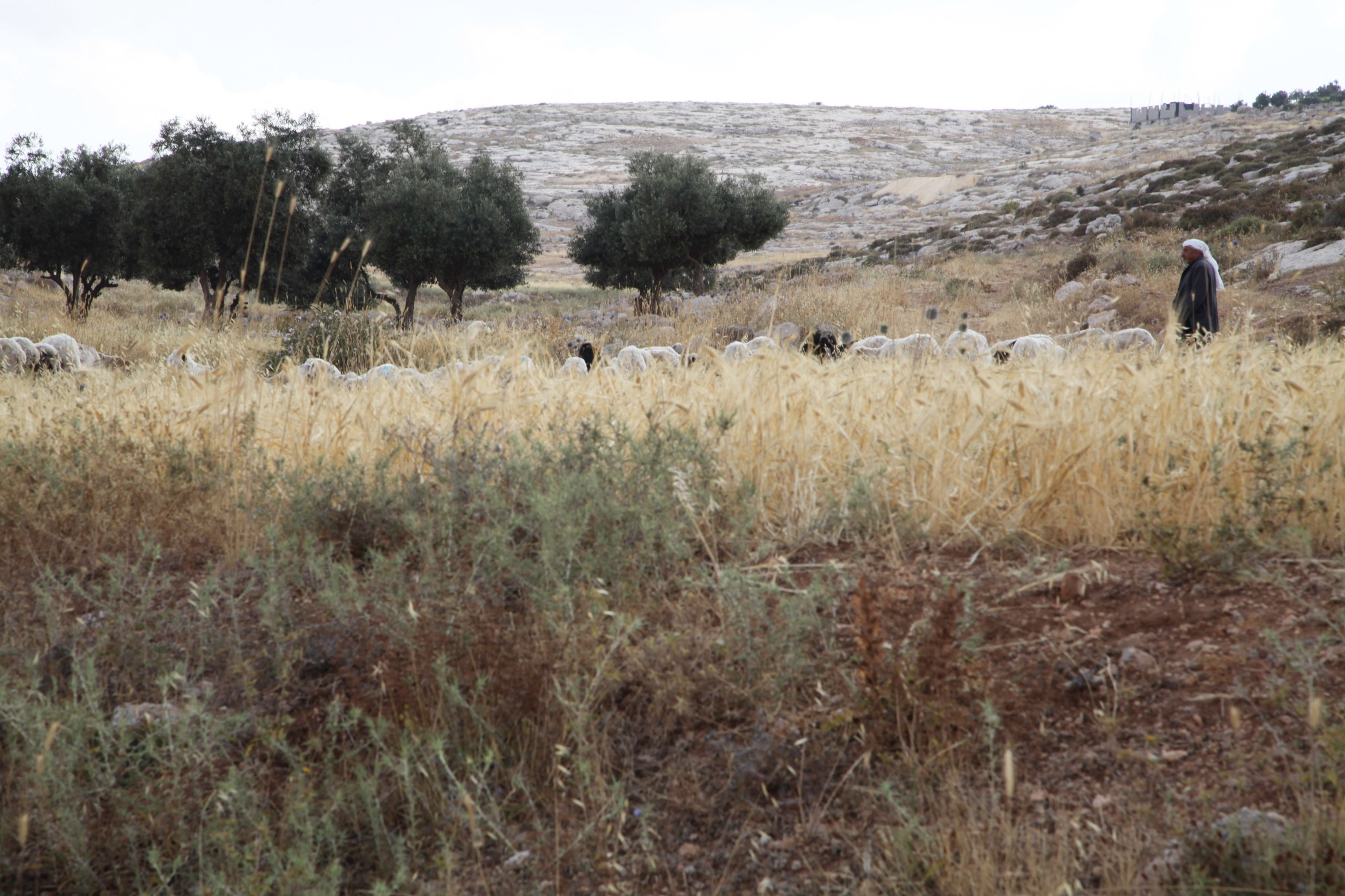
Umm al-Amad, June 2014. Photo by Margaret Olin
So Guy tells him clearly, and mildly, that the order is illegal, and we have with us the Supreme Court ruling to prove it. After years of struggle in Umm al-Amad, with all the usual travails—repeated expulsions, beatings, arrests, endless threats, routine state terror, as we fought, week by week, literally metre by metre, to extend the area the shepherds could reclaim as theirs– the Supreme Court recognized that the wadi and the hills beneath the settlement of Otniel were Palestinian lands which the people of Umm al-Amad and Karama and the other villages could freely use. It took us some four years on the ground and in the courts to win back the stolen terrain. Guy carries the ruling with him whenever he comes here. The lieutenant takes it, glances at it, and says, “This means nothing to me. I have my orders. Get these shepherds out of here.”
“Why?”
“Kacha—because.”
“What you are doing is illegal.”
“It’s no concern of mine. I’ll be quite happy to arrest them, handcuff them, blindfold them, and leave them lying like that for some hours in the settlement.”
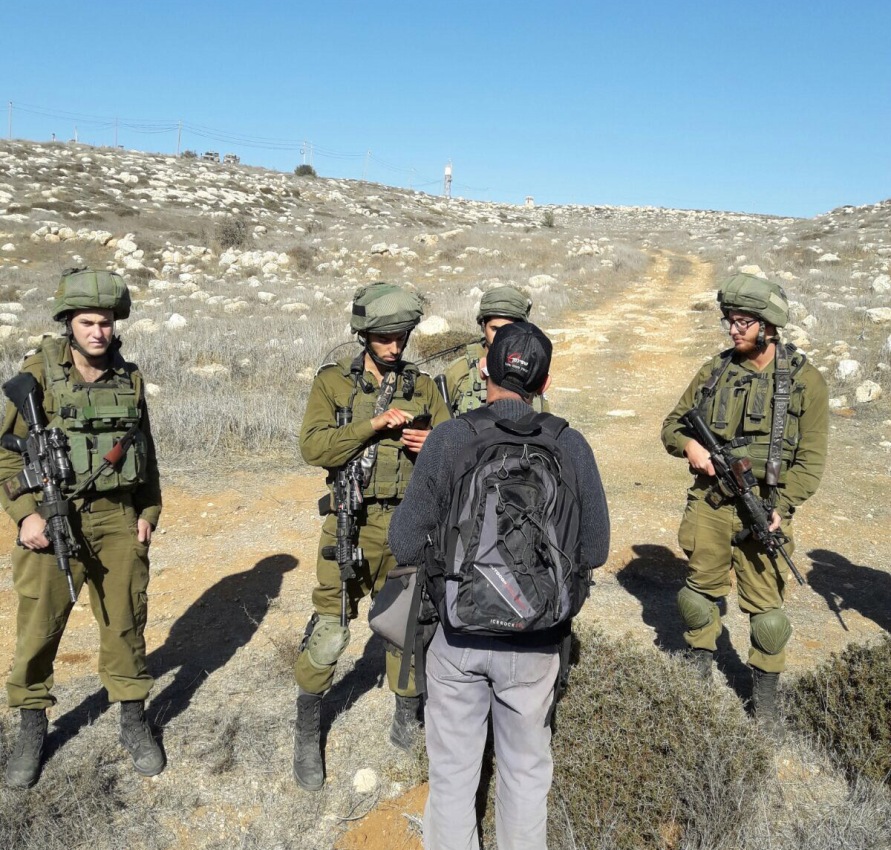
Photo by Elena Mucciarelli
“You have no right to threaten them like that. This is their land.”
“I can do what I want. I don’t need any papers to prove it. I have my gun.”
But he doesn’t look as cocksure as he sounds. He keeps glancing around at his soldiers. There are five of them, in the usual get-up. Helmets, rifles, boots. Some of them seem to me not too happy. But then, when are soldiers happy? It’s worse, I know from experience, when they have an officer who’s no damned good.
The lieutenant likes to issue threats. “I’m very affable,” he says to us, “but when people don’t obey me I get physical and violent very quickly. I don’t like it.” This is the only language he knows, impoverished beyond belief, and I don’t think he’s recently, or maybe ever, had an original thought. However, as an afterthought, he says to his men, “We’re doing this today for the Motherland, the moledet.” Never has the Hebrew word sounded to me so sinister.
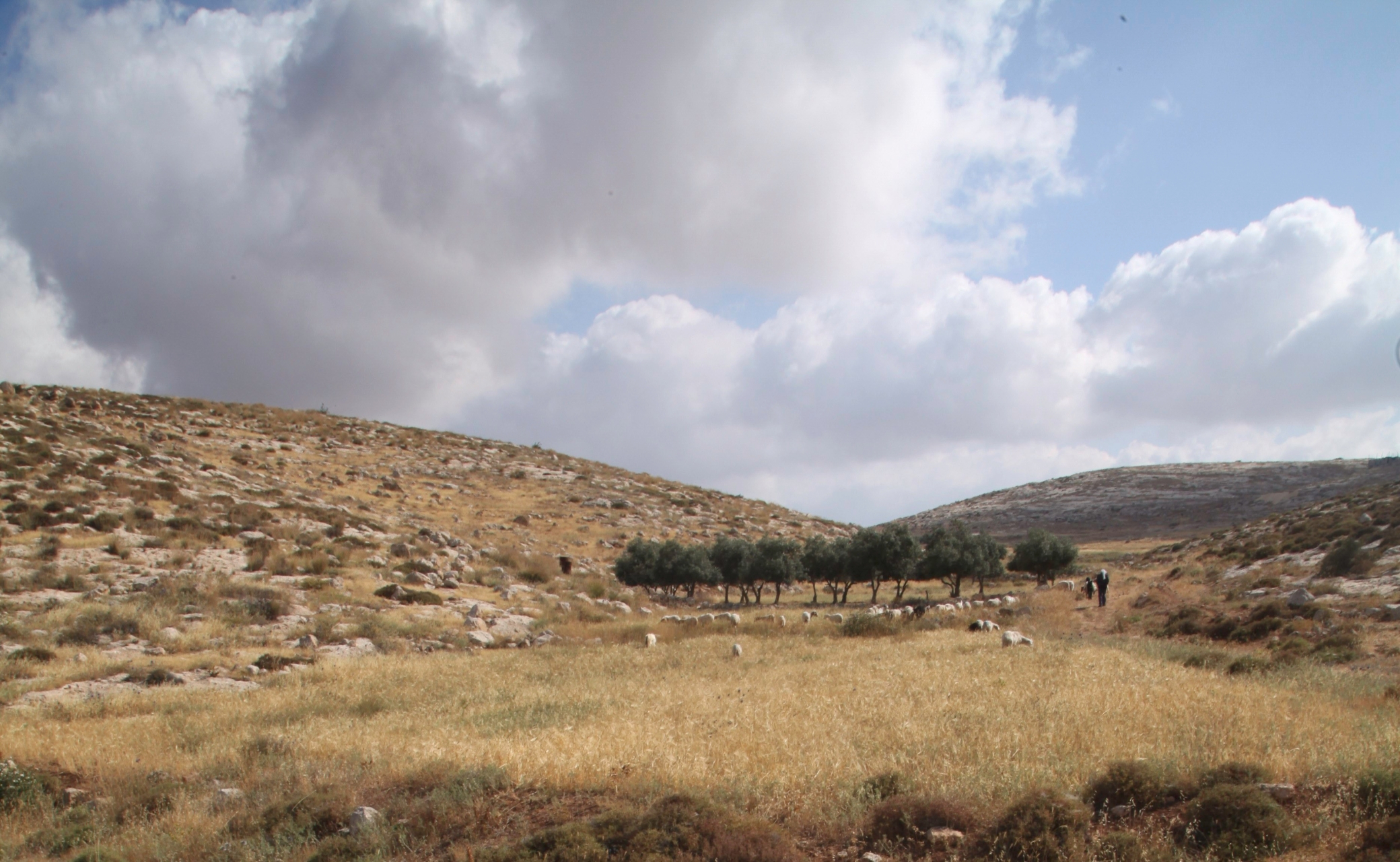
Umm al-Amad, June, 2014. Photo by Margaret Olin
Then there’s the question of the map that accompanies the digital CMZ order, as it must. The whole business is illegal, but the lieutenant, who’s not so good at reading maps, compounds the crime. Since we’re worried about what will happen to ‘Abed and Ahmad and Hamid if they get arrested, we’re prepared to move farther away from the settlement, up the wadi, to the hillside that is clearly outside the line on the map. But that’s not good enough for our lieutenant. He thinks the shepherds have to go home, get out of there, not be there, not be.
He tells them this in pigeon Arabic, horrible to the ear. Guy, who’s good at maps, tells him over and over that the hill we’re retreating to is beyond the arbitrary line of the map. The lieutenant, unable to lose face, insists that his orders are to clear them out altogether, to make them disappear. He says: “Get them off my lands.” I wonder why he thinks they’re his. We demand that he summon the Matak, a senior officer from the Civil Administration, to settle this point. Now.
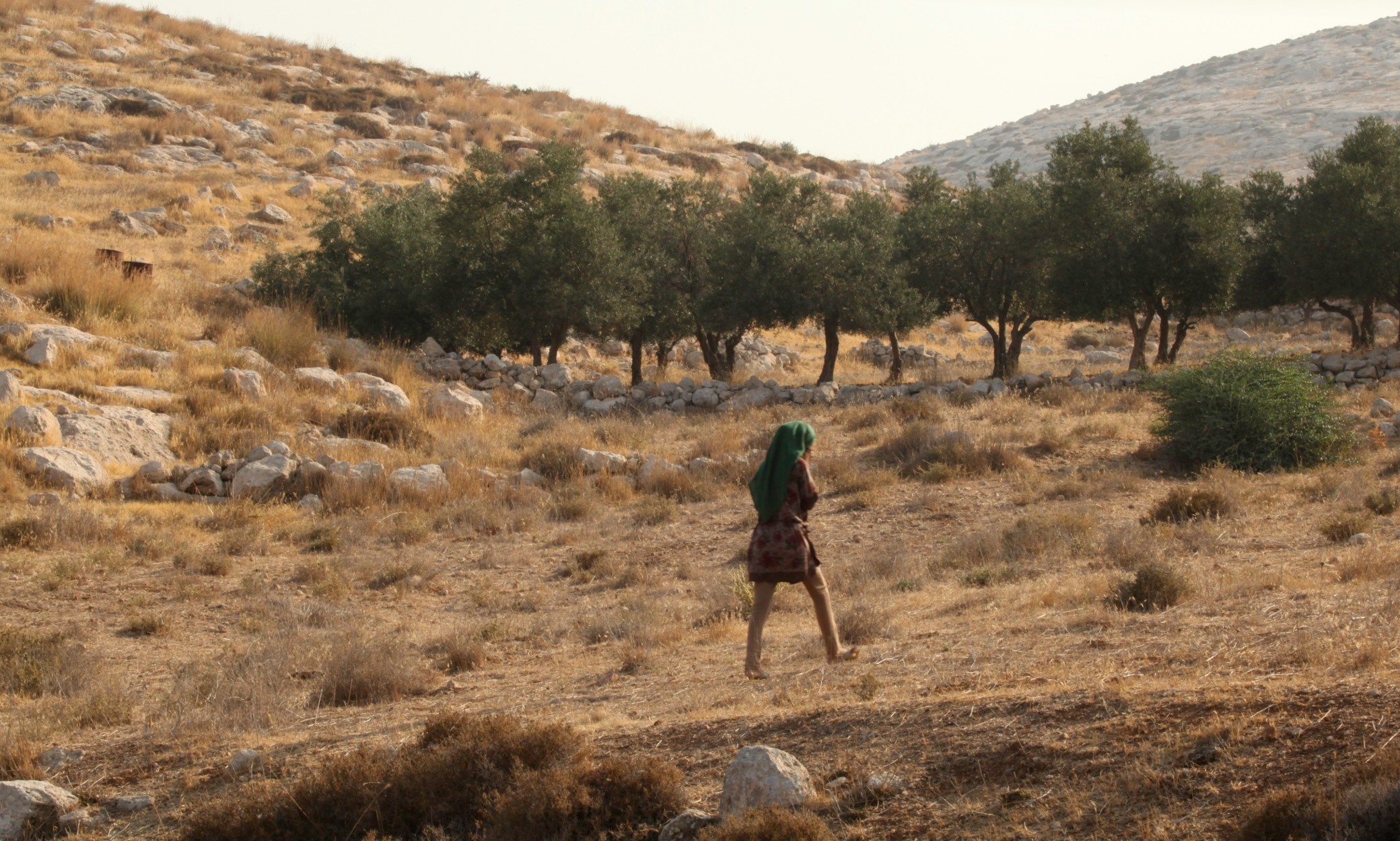
No caption
He calls the Matak—or someone else. Who can say? Now we wait. Every once in a while he points his gun at us and repeats the threat. If the shepherds dare to cross the line even by an inch, he’ll arrest them. He wants them to know this. It should be crystal clear. But the goats, endowed, one supposes, with the less than lucid consciousness of a goat, have a way of spilling over the hills and crossing the invisible line. On second thought, maybe their awareness is more lucid than the lieutenant’s. It’s the shepherds’ kids who are sent to fetch them, and if you say to the lieutenant—“Look, they’re six years old, stop pointing your gun at them, stop threatening them”—he gets riled. ‘Abed, however, who’s already been through whatever hells the army has to offer, is enraged. “Look at this,” he says to me. “Have you ever seen anything like it? A little boy, a bunch of hungry goats, and six soldiers with their big guns aimed at them. It’s crazy.” I couldn’t agree more. I tell him: the court will decide, and it will decide in our favour. We can’t settle it here on the ground.
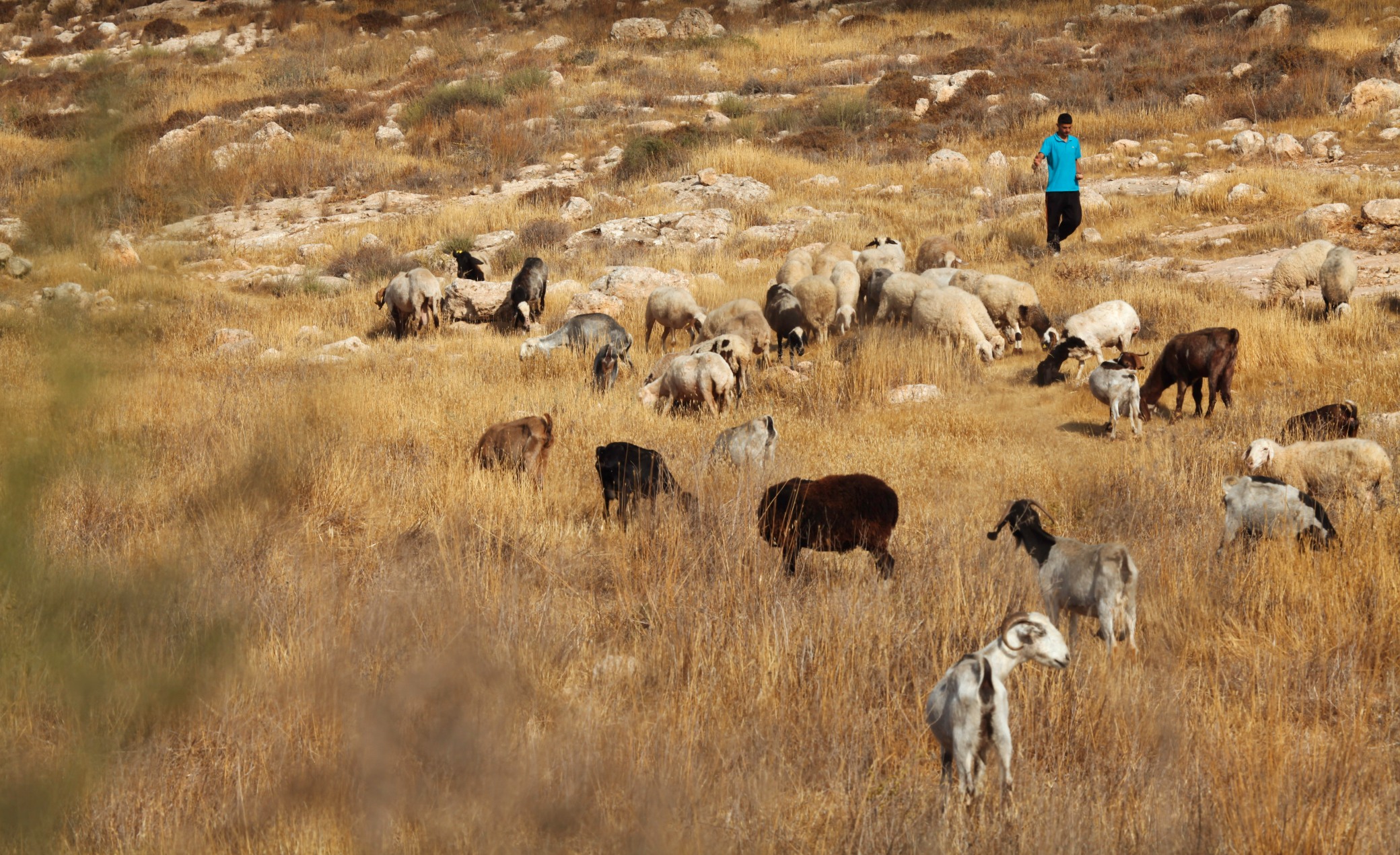
Ahmad in Umm al-Amad, July, 2017. Photo by Margaret Olin
I think that only the surreal feels really real. Late winter morning, the sun on our skin. There’s an enormous, heavy, black sheep, probably pregnant, lumbering across the wadi floor. The kids are running up and down the rocks in the wake of the incorrigible goats. One of the shepherds has decided that this is the perfect moment to make tea. He lights a fire and puts the old, soot-soiled kettle on the burning twigs. Soon Wala, impish, insouciant, brings each of us of a glass of tea. The soldiers huddle together, making evil plans. The Matak, of course, never turns up. Ahmad, furious, yells at the lieutenant: “You think you’re some big man, but you’re no more than a common criminal.” The lieutenant probably can’t understand.
Maybe, it occurs to me, he might be amenable to some suggestion that would allow him to climb down off the tree. “Look,” I say to him, “they’re almost finished with today’s grazing. They’ve already moved outside the ‘forbidden’ ground. Give them another 10 or 15 minutes, they’ll wind up and go home. Stop threatening them, it makes everything worse and it scares the kids.” Something like that. The lieutenant looks at me with scorn. “No.”

Wala gathers up the empty tea glasses, balancing them against her body in a delicious, gravity-defying system that only she could invent. These people are poor; every glass counts. She will bring them home over the high hill. How many times have I climbed this hill? But today is worse. I figure my ancestors must have been driven from their homes—in Spain, in the Rhineland, God knows where else—and here it is again, what they must have known, something black inside me, the blackness of rage, of hate, though hate is rare for me in south Hebron, over the years it’s been displaced by something else that I can’t name, something better than hate. And there is the weariness; do we have to start all over?
We’ll go back to the courts, and the courts will reaffirm the earlier ruling, and the wadi will be open again, and for a while the sheep will graze there until we have to do it all once more, and the pitiful lieutenant might even grow up some day and discover he is a person with a mind and a body of his own, I know it can happen, maybe after the Occupation ends. Maybe even before.
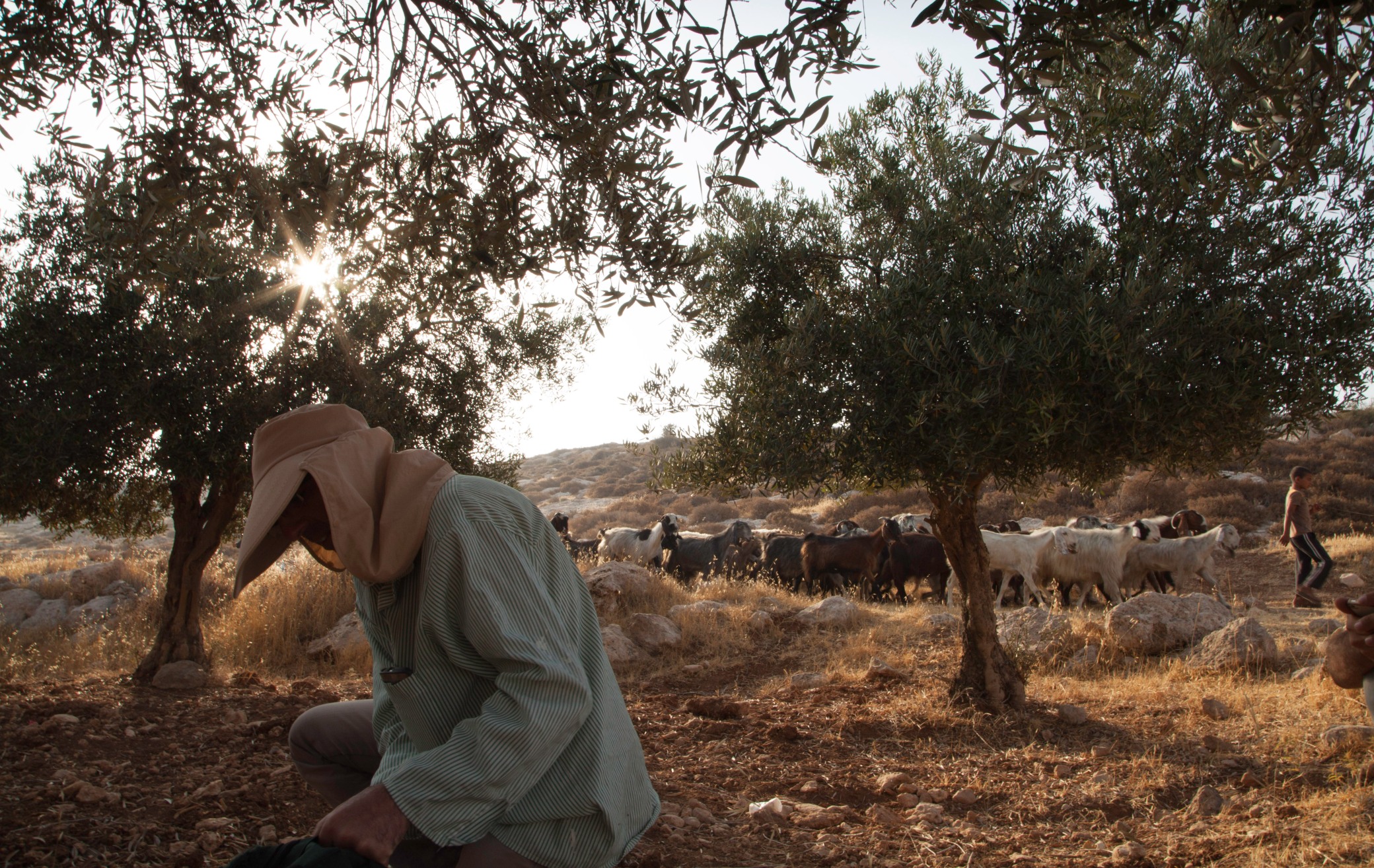
Guy in Umm al-Amad, July, 2017. Photo by Margaret Olin
On the way to Umm al-Khair we stop at Ma‘in and climb the hill to where the owners were digging shallow pits for planting baby olive trees, a few days back. The settlers of Avigail, across the highway, must have summoned the soldiers. This time they arrested ten Palestinians, accusing them of digging in an “archaeological site.” There is no square meter in Palestine-Israel that is not an archaeological site. A new and ominous pretext, potentially useful for stealing land. They kept their prisoners all day and released them in the evening. This story, like Umm al-Amad’s, isn’t over yet.
One thing I can say. Things are getting worse.

*You may see more of Um al-Amad in 2014 here
